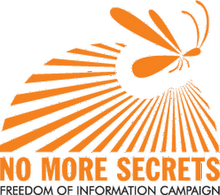The Datuk Bandar of Kuala Lumpur is claiming that he’s the victim of a conspiracy, initiated by corrupt officials safeguarding their engorged rice-bowls. The writer of the poison book claims his own claims are well-researched. The battle seems headed to the courts.
It’s not the first time the reputation of powerful politicians or political appointees has been besmirched with the poison pen. We seem to be unable to rise above the adage of sticks and stones. Words continually hurt us.
And we continue offering them official credence. The Anti-Corruption Agency has admitted that it follows up leads sent in poison pen letters, or anonymous tips. Almost a third of its investigations come from unverified sources.
Makes you wonder. Why do we give such credence to these rumour-mongers, people who refuse to accept responsibility for the statements they make? It’s hardly a hallmark of sincerity, not in an ideal world.
Unfortunately, of course, ours is not an ideal world. Datuk Ruslin at DBKL is finding out to his cost that Malaysian mud is a very sticky substance. More viscous than in other parts of the world. But there are ways of watering it down.
Rumours and misinformation are like fungi. They thrive in the dark. Shining light on them causes them to wither and die. If there is truth in either the Datuk Bandar’s allegation of a conspiracy, or in the alleged conspirators allegations against him, bringing more information into the public realm is the only way that reputations – not just of individuals but of the institution of the DBKL – can be salvaged. And it shouldn’t be up to the Datuk Bandar or others, who have political or economic interests to safeguard, whether information is released. Or what information should be released.
So who does decide when and what information to release?
The ideal situation would be that all information is automatically available to the public. If it isn’t going to be made available, there should be a good reason, and that reason should be made available to the public. ‘To protect my own interests’ is hardly likely to make it as a reason to hide information.
The DBKL, and the Datuk Bandar, don’t need to wait for national legislation to start enacting openness regulations within City Hall. They could adopt their own transparency regulations, ideally based on international freedom of information principles, as encapsulated in the statement of principles released last year (available at www.cijmalaysia.org/Info_café).
Tackling corruption, and the mud-smearing of poisonous pens, becomes much easier when the public can see the grounds, or lack of grounds, for complaints and convictions.
Subscribe to:
Post Comments (Atom)


No comments:
Post a Comment